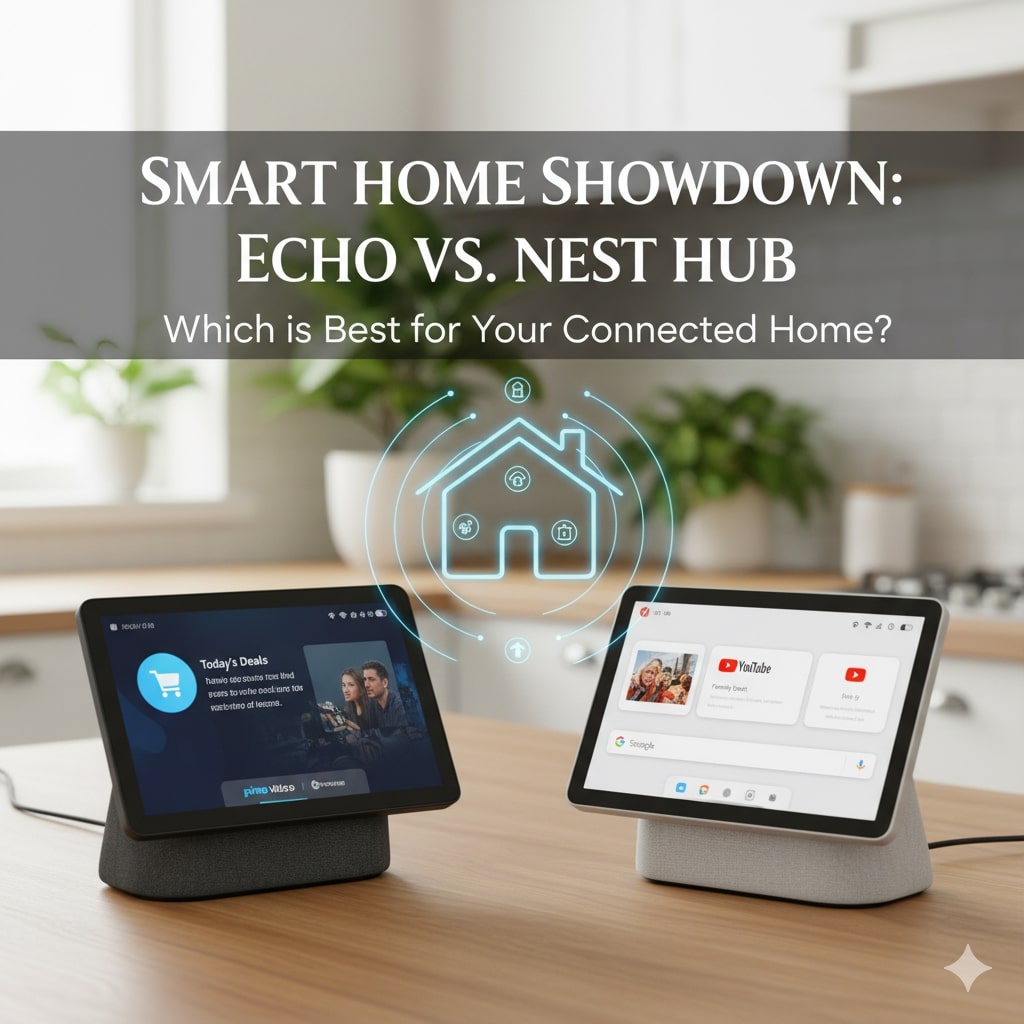Choosing between an Amazon Echo and a Google Home (now known as Google Nest) for your smart home is a crucial decision, as it dictates the entire ecosystem you’ll build. Both platforms are excellent, but they have distinct strengths and weaknesses. Here’s a breakdown to help you decide which is best for you.
The Voice Assistants: Alexa vs. Google Assistant
The core of each smart home system is its voice assistant.
- Google Assistant (Google Home/Nest): Google Assistant is widely considered the more “intelligent” and conversational of the two.
- Natural Language: It excels at understanding natural language and context. You can often ask follow-up questions without repeating the “Hey Google” wake word.
- Knowledge Base: Leveraging Google’s vast search engine, it’s generally better at answering complex, factual questions and providing comprehensive information.
- Pros: Better at multiple commands in one sentence, more conversational, superior search capabilities.
- Cons: Limited to the “Hey Google” wake word (though some devices have “Ok Google” as an option).
- Amazon Alexa (Amazon Echo): Alexa is a workhorse for smart home control and is deeply integrated with Amazon’s services.
- Skills: Alexa has a massive library of “Skills” (apps) created by third-party developers, allowing it to do everything from ordering a pizza to playing games.
- Flexibility: It offers multiple wake words (“Alexa,” “Echo,” “Amazon,” “Computer”), giving you more choice.
- Pros: More third-party device compatibility, better for shopping and order tracking from Amazon, a huge library of skills.
- Cons: Can be less conversational and sometimes requires more specific command syntax.
Smart Home Ecosystem and Compatibility
This is arguably the most important factor in your decision.
- Amazon Echo (Alexa):
- Compatibility: Alexa boasts a massive lead in device compatibility, working with tens of thousands of devices from various brands. If a smart device exists, there’s a good chance it’s Alexa-compatible.
- Strengths: Seamless integration with Amazon’s own brands like Ring and Blink, making it a powerful choice for security. Many Echo devices have a built-in Zigbee hub, simplifying the setup of compatible devices like smart bulbs and plugs.
- Shopping: A major advantage for Amazon customers is the ability to shop directly on Amazon with your voice.
- Google Home (Google Assistant):
- Compatibility: While it has fewer compatible devices than Alexa, it still supports the most popular brands and technologies. It integrates seamlessly with Google’s own Nest products (thermostats, cameras, doorbells).
- Strengths: Google has been a key driver of the Matter standard, which aims to improve cross-platform compatibility between smart home devices. This could close the gap in the future.
- Video: Google Assistant’s native connection to YouTube and Chromecast gives it a major edge in video content and casting to compatible TVs.
Product Lines and Features
Both companies offer a wide range of devices, from simple speakers to smart displays.
- Amazon Echo:
- Speakers: The lineup includes the compact and affordable Echo Dot, the standard Echo and the high-fidelity Echo Studio.
- Smart Displays: The Echo Show series (Echo Show 5, 8, 10, etc.) features screens for video calls, streaming, recipe viewing and more.
- Audio: The Echo Studio is highly regarded for its sound quality and the Echo Dot has a 3.5mm auxiliary port for connecting to external speakers.
- Google Home (Nest):
- Speakers: The Nest Mini and Nest Audio offer good sound quality and stylish, fabric designs.
- Smart Displays: The Nest Hub and Nest Hub Max provide screens for Google Photos, YouTube, and video calls. The Nest Hub Max also includes a built-in camera for security and video calls.
- Audio: The Nest Audio is focused on music quality, and Google Home devices natively support Chromecast audio.
The Bottom Line: Which is Best for You?
The best choice depends on your specific needs and existing brand loyalty.
Choose Amazon Echo if:
- You are an avid Amazon shopper and want to use your voice to buy products and track orders.
- You want the widest possible range of compatible smart home devices.
- You already have or plan to purchase Amazon-owned products like Ring or Blink.
- You want a huge variety of “Skills” and third-party integrations.
Choose Google Home/Nest if:
- You prioritize a more conversational and intelligent assistant that can answer complex questions.
- You are an Android user or are heavily invested in the Google ecosystem (Gmail, Google Calendar, YouTube).
- You want to use your smart display for video content and casting from your phone to a TV with Chromecast.
FAQs – Comparing Amazon Echo vs. Google Home
Q1: Which smart speaker has better voice recognition, Amazon Echo or Google Home?
A: Both have excellent voice recognition, but Google Home is often praised for understanding natural language better and answering trivia questions more accurately.
Q2: Can I use Amazon Echo and Google Home with the same smart home devices?
A: Many smart devices work with both systems, but compatibility can vary. Amazon Echo supports a wider range of third-party devices, while Google Home excels in devices supporting Google Assistant.
Q3: Which smart speaker offers better sound quality?
A: Higher-end models from both brands deliver great sound. Google Home Max is known for rich audio, while Amazon Echo Studio also offers premium sound. Entry-level models have similar basic sound quality.
Q4: Is one better for streaming music than the other?
A: Both support popular music services. Amazon Echo integrates deeply with Amazon Music, while Google Home works seamlessly with YouTube Music and Google Play Music.
Q5: Which is easier to set up for beginners?
A: Both devices have user-friendly apps and simple setup processes. Some users find Amazon Echo’s app slightly more intuitive.
Q6: Can I control smart home devices with voice on both?
A: Yes, both Amazon Echo and Google Home allow voice control for lights, thermostats, locks, and more.
Q7: Are there differences in privacy features?
A: Google and Amazon have different privacy settings. Both allow you to mute microphones and review/delete voice recordings. It’s important to check settings regularly to manage your privacy.
Q8: Can both work together in one smart home?
A: Yes, you can use both Amazon Echo and Google Home devices in the same home, but they operate independently and require separate apps.
Q9: Which smart assistant is better at answering general knowledge questions?
A: Google Assistant generally provides more accurate and detailed answers due to Google’s search engine capabilities.











One thought on “Comparing Amazon Echo vs. Google Home: Which Is Best for Your Smart Home?”